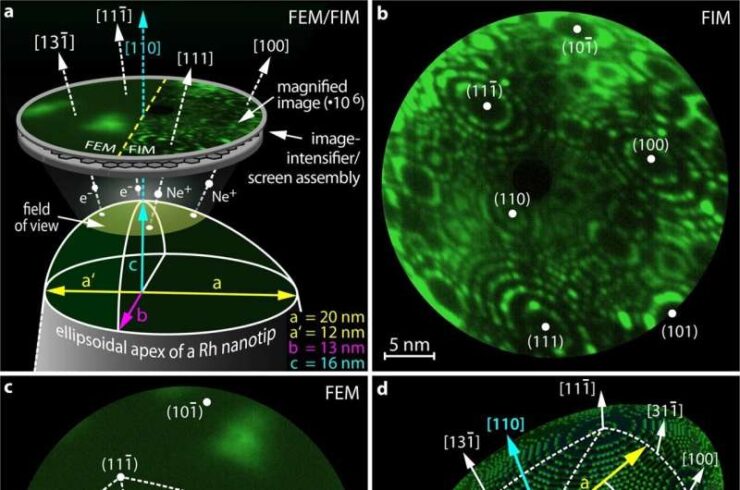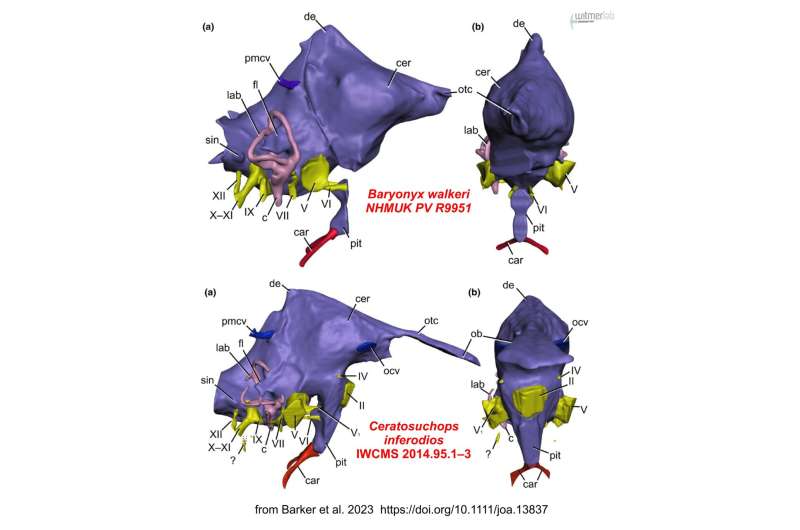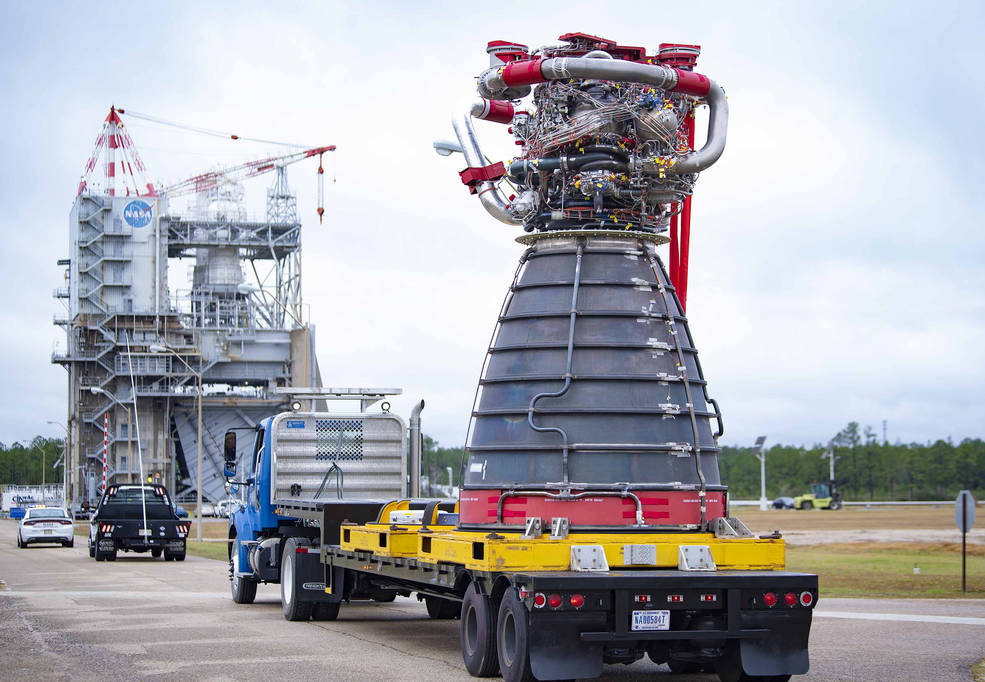TSS EXCLUSIVE: AI & ‘Glocalization’: Solutions For Future Pandemics
by Vittorio Bollo
“This pandemic has been very severe, it has spread around the world extremely quickly and has affected every corner of this planet. But this is not necessarily the big one. This virus is very transmissible and kills people, it has deprived so many people of loved ones. But its current case fatality is reasonably low in comparison to other emerging diseases. This is a wake-up call.” Those were the stark words of Dr. Mark Ryan, head of the emergencies program at the World Health Organisation (WHO) as the COVID-19 pandemic was in its second ‘wave’ in December 2020.
“这次疫情非常严重,它以极快的速度在世界各地蔓延,影响了全球的角角落落。但这并不一定是最重要的。这种病毒的传染性很强,会导致死亡,它让很多人失去了亲人。但与其他新发疾病相比,目前COVID-19的病死率相当低。这是一个警钟。”这是世界卫生组织紧急项目负责人马克·瑞安博士在2020年12月COVID-19疫情进入第二波时发表的严厉言论。
The pandemic certainly was a wake up call. The global response to COVID-19 was a series of failures, a damning indictment made by the WHO on January 20th, 2021, in its ongoing assessment of the how governments and public health bodies worldwide had responded to the crisis. The WHO panel, led by Helen Clark, a former Prime Minister of New Zealand, and Ellen Johnson Sirleaf, a former President of Liberia, criticized the slow and contradictory responses to the coronavirus by all entities, including the WHO itself.
这次疫情无疑是一个警钟。2021年1月20日,世卫组织在评估全球政府和公共卫生机构应对危机的方式时,谴责了全球应对COVID-19的一系列失策。由新西兰前总理Helen Clark和利比里亚前总统Ellen Johnson Sirleaf领导的世卫组织专家组批评了包括世卫组织本身在内的所有实体对冠状病毒的缓慢和矛盾的反应。
Many experts agree that there will be future pandemics, probably increasingly so. The mistakes made with COVID-19 must pave the way for improved responses in the future. For that purpose, and with an eye firmly on the future, two responses will be specifically explored in this article: the role of artificial intelligence (AI) and the emergence of the concept known as ‘glocalization’.
许多专家一致认为,未来还会有流行病,而且可能会越来越多。COVID-19所犯的错误必须为今后改进应对措施铺平道路。为此目的,并着眼于未来,本文将特别探讨两种回应:人工智能(AI)的作用和“全球本土化”概念的出现。
AI and Future Pandemics
人工智能和未来的流行病
There are many exciting ways in which AI can be used to predict, collate, and analyze major healthcare events such as pandemics, as well as provide solutions in terms of both response and drug and vaccine development.
有许多令人振奋的方法可以用来预测、整理和分析大规模疫情等重大医疗事件,以及提供应对和药物和疫苗开发方面的解决方案。
Enhanced Structural Modeling
增强结构建模
AI-enhanced computer modeling will ensure that the viruses of future pandemics can be identified and mapped more quickly and efficiently. The potential for this was demonstrated by Dr. Harel Weinstein at Cornell University’s Weill Cornell College of Medicine in May 2020. Weinstein and his team were able to investigate the coronavirus’s initial penetration of the outer membrane of a host cell, doing so by modeling to the tiniest atomic detail the unique and famous ‘spike’ of the virus, known as the fusion peptide. It was this peptide that made it so efficient in penetrating host cells. The phenomenally precise microscopic work was made possible with extensive access to the cloud computing resources of both IBM and Microsoft.
人工智能增强的计算机建模将确保更快速、更有效地识别和绘制未来流行的病毒。2020年5月,康奈尔大学威尔康奈尔医学院的哈雷尔·温斯坦博士展示了这种可能性。温斯坦和他的团队能够调查冠状病毒最初穿透宿主细胞外膜的情况,方法是模拟最微小的原子细节,即病毒独特而著名的“刺突”,即融合肽。正是这种肽使它能如此有效地穿透宿主细胞。通过广泛使用IBM和微软的云计算资源,这种极其精确的微观工作成为可能。
Dr Weinstein attributed the rapid identification of the coronavirus’ so-called ‘spike’ to the detailed structural model that they derived using IBM’s AI methodologies. Weinstein commented how, “Because we now understand how this happens in such fine molecular details, this approach should be useful in the future if another dangerous coronavirus starts spreading in the human population.” These tools further enabled the design of drugs that can block this fusion peptide.
温斯坦博士将冠状病毒的快速识别“所谓的‘高峰’”归因于他们使用IBM的人工智能算法得出的详细结构模型。温斯坦评论道:“因为我们现在了解了这是如何在如此精细的分子细节中发生的,如果另一种危险的冠状病毒开始在人类中传播,这种方法在未来应该是有用的。”这些工具进一步使药物的设计能够阻止这种融合肽。
Rapid Data Collation
迅速收集数据
One of the most crippling aspects of any pandemic or major public healthcare event is the overwhelming amount of medical data and other analytics that arises. Traditional research methodologies, including legacy computing capabilities, simply cannot cope with the enormous amount of data that can arise due to a pandemic or similar major healthcare event. Furthermore, predictive models used by healthcare professionals are only able to consider limited variables in health data that is clearly delineated and well-organized.
任何疫情或重大公共卫生事件最严重的一个方面是随之而来的大量医疗数据和其他方面的分析。传统的研究方法,包括遗留的计算能力,根本无法处理由于流行病或类似的重大医疗事件而产生的大量数据。此外,医疗保健专业人员使用的预测模型只能考虑清楚描述和组织良好的健康数据中的有限变量。
Healthcare-focused machine learning, such as that developed by IBM Watson, is able to make sense of huge amounts of medical data, however chaotic and however many myriad sources it is derived from. Critically important data insights can be produced by machine-learning tools using neural networks that ‘decipher’ patterns and other important attributes from data.
以医疗保健为重点的机器学习,比如IBM Watson开发的机器学习,能够理解大量医疗数据,无论这些数据多么混乱,无论它们来自多少个来源。机器学习工具可以利用神经网络从数据中“解读”模式和其他重要属性,从而产生极其重要的数据见解。
A 2021 study by Williams, Chaturvedi, Urman et al. found that there were multiple benefits in using AI during a pandemic. As an example, the study cited the successful use of COVID-Net, which used neural networks to diagnose COVID-19 from chest radiography images, far more quickly than the conventional reverse transcriptase-polymerase chain reaction (RT-PCR) technique usually used for such diagnoses.
Williams、Chaturvedi、Urman等人在2021年的一项研究发现,在大流行期间使用人工智能有多重好处。例如,该研究引用了COVID-Net的成功使用,该技术使用神经网络从胸部x线照片诊断COVID-19,远远快于通常用于此类诊断的传统逆转录酶-聚合酶链反应(RT-PCR)技术。
Predictive Capabilities
预测能力
AI also has a significant role to play in the predictive capabilities of future pandemics. There was already evidence of those capabilities during the COVID-19 virus, with AI-based prediction models being used in key focus areas, including population surveillance, case identification, contact tracing, and containment measures. Kings College London reported about an AI application that helped researchers in the UK determine the speed with which the coronavirus was spreading, including in what regions of the country, as well as pinpoint what people were at highest risk.
人工智能在预测未来大流行病的能力方面也可以发挥重要作用。在COVID-19病毒爆发期间,已经有证据表明这些能力,基于人工智能的预测模型正在重点领域使用,包括人口监测、病例识别、接触者追踪和遏制措施。伦敦国王学院(Kings College London)报道了一项人工智能应用程序,该应用程序帮助英国的研究人员确定冠状病毒传播的速度,包括在英国的哪些地区,以及确定哪些人面临最高风险。
Further evidence of AI’s predictive potential was evidenced by the Canadian company BlueDot, which disclosed the possibility of an outbreak of the coronavirus as early as December 2019. Its AI platform successfully flagged a cluster of “unusual pneumonia” cases occurring in the vicinity of a market in Wuhan, China on December 30th, according to CNBC. It achieved this with data trends analysis-based modeling using machine learning and natural language processing (NLP). The BlueDot platform accurately predicted eight of the first 10 cities that had outbreaks of the disease in Hubei province and beyond. The company informed its clients of predicted outbreaks via its ‘Insights’ platform. It further accurately predicted that Brazil and India would be future hotspots for the coronavirus, months in advance of them becoming so.
加拿大蓝点公司(BlueDot)进一步证明了人工智能的预测潜力,该公司披露,最早可能在2019年12月爆发冠状病毒疫情。据美国全国广播公司财经频道(CNBC)报道,12月30日,该公司的人工智能平台成功标记出中国武汉一个市场附近发生的聚集性“不寻常肺炎”病例。它通过使用机器学习和自然语言处理(NLP)的基于数据趋势分析的建模实现了这一点。蓝点平台准确预测了湖北省及其他地区爆发疫情的前10个城市中的8个。该公司通过“洞察”平台告知客户预测的疫情。它还准确地预测,巴西和印度将成为未来的冠状病毒热点,比它们提前了几个月。
Glocalization
全球本土化
The COVID-19 pandemic wasn’t only uniquely disruptive from a global health perspective; it was also disruptive (and potentially paradigm-changing) in how globalization was viewed in the stark context of a global pandemic.
COVID-19疫情不仅从全球卫生角度来看具有独特的破坏性;在全球大流行病的严峻背景下如何看待全球化,这也具有破坏性(并可能改变应对模式)。
The Emergence of ‘Glocalization’
“全球本土化”的出现
There is no denying that COVID-19 was turbocharged due to an increasingly globalized world. According to The Lancet: “The scale of the COVID-19 pandemic is a consequence of international trade and globalization, with the virus spreading along established trade and travel routes.” Globalization came off as culprit. Even traditionally globalist, neoliberal publications such as the Harvard Business Review and Time had to admit that globalization would never be the same again in the aftermath of the pandemic.
不可否认的是,随着世界日益全球化,新冠肺炎疫情变得更加严重。《柳叶刀》杂志称:“COVID-19大流行的规模是国际贸易和全球化的结果,病毒沿着既定的贸易和旅行路线传播。”全球化成了罪魁祸首。即使是传统的全球主义、新自由主义出版物,如《哈佛商业评论》和《时代》,也不得不承认,在疫情之后,全球化将不再是原来的样子。
In their late 2020 study titled From Globalization to Regionalization: The United States, China, and the Post-Covid-19 World Economic Order, Wang and Sun argued that a form of regionalization would emerge as a counterpoint to the ‘damaged’ dogma of globalization. In a late 2020 report compiled for the United Nations Conference on Trade and Development (UNCTAD), business professors Peter Enderwick and Peter Buckley argued that regionalization could be a viable antidote to the excesses of globalization exposed by the pandemic.
在2020年底的一项题为《从全球化到区域化:美国、中国和新冠肺炎后的世界经济秩序》的研究中,王岐山和孙晓东认为,一种区域化形式将出现,作为对全球化“受损”教条的对抗。在2020年底为联合国贸易和发展会议(UNCTAD)编写的一份报告中,商学教授彼得·恩德维克(Peter Enderwick)和彼得·巴克利(Peter Buckley)认为,区域化可能是应对疫情暴露出的过度全球化的可行解毒剂。
A further development is a greater reliance and focus on the local, rather than the global or even regional. Glocalization, a part-portmanteau of the words ‘globalization’ and ‘local,’ is defined by the Encyclopedia Britannica as, “the simultaneous occurrence of both universalizing and particularizing tendencies in contemporary social, political, and economic systems.” It’s a fascinating development applicable to nation states and corporations alike, and with profound impacts on how pandemics could be dealt with in the future.
进一步的发展是更多地依赖和关注当地,而不是全球甚至地区。“全球本土化”是“全球化”和“地方化”两个词的合成词,《大英百科全书》将其定义为:“在当代社会、政治和经济体系中,普遍化和特殊化趋势同时发生的现象。”这是一种令人着迷的发展,适用于民族国家和企业,并对未来如何应对流行病产生深远影响。
Globalized Medical Supply Chains
全球化医疗供应链
The COVID-19 pandemic resulted in the near-shutdown of most of the world economy, on a scale and with a reach never seen before. Particularly hard-hit was the medical product supply chain and the provision of everything from face masks, medical gowns and goggles and other personal protective equipment (PPE), to ventilators and medical oxygen, and allied critical medical equipment. The WHO was already warning about looming shortages in these critical supplies by as early as the first week of March 2020, when the pandemic was still in its early stages, and which the U.S. Food and Drug Administration (FDA) had already cautioned about a week before.
2019冠状病毒病(COVID-19)大流行导致世界大部分经济近乎关闭,其规模和影响之广前所未有。医疗产品供应链以及从口罩、医用长袍、护目镜和其他个人防护装备、呼吸机、医用氧气以及相关关键医疗设备的供应受到了特别严重的打击。早在2020年3月大流行仍处于早期阶段的第一周,世卫组织就已经就这些关键物资可能出现短缺发出警告,美国食品和药物管理局(FDA)在一周前就已经发出警告。
Think tanks, UN agencies, and governments alike were soon stating the obvious: too many countries had become too reliant on global medical supply chains, including the United States. This over-reliance on globalized supplies meant that the healthcare departments in many countries simply couldn’t respond rapidly and effectively with the outbreak of a global pandemic.
智库、联合国机构和政府都很快阐明了一个显而易见的事实:包括美国在内的太多国家已经变得过于依赖全球医疗供应链。这种对全球化供应的过度依赖意味着,许多国家的医疗部门根本无法对全球大流行病的爆发做出迅速和有效的反应。
Some players in the medical supply chain industry argued that these supply chains had to be more sophisticated and resilient in order to cope with future pandemics, as German logistics giant DHL outlined in its white paper on the topic.
医疗供应链行业的一些参与者认为,为了应对未来的流行病,这些供应链必须更加复杂和有弹性,正如德国物流巨头DHL在其白皮书中概述的那样。
Localized Supply Chains
本地化的供应链
An emphasis on glocalization could be an even better answer. Marcell Vollmer, partner and director for the Boston Consulting Group (BCG), certainly believes that. Marcell contends that, “For global supply chains, Glocalization combines the global sourcing for categories to benefit from labor arbitrage or competitive technologies with the proximity of local and regional availability of critical supplies.”
强调全球本土化可能是一个更好的答案。波士顿咨询集团(BCG)合伙人兼董事马塞尔•沃尔默(Marcell Vollmer)当然相信这一点。马塞尔认为,“对于全球供应链而言,全球本土化将从劳动力套利或竞争性技术中受益的类别的全球采购与本地和区域关键供应的邻近性结合起来。”
Marcell and other analysts, including the Alliance for Research on Corporate Sustainability (ARCS), make compelling cases for why glocalization could be the answer: it means governments and private companies are able to harness the efficiencies and economies of scale afforded by global trade, while ensuring that critical products and equipment are sourced locally (or regionally at most) and, thus, be readily available should a crisis – such as a pandemic – suddenly arise.
马塞尔和其他分析师,包括企业可持续发展研究联盟(ARCS),提出了令人信服的理由,为什么全球本土化可能是答案:这意味着政府和私营企业能够利用全球贸易带来的效率和规模经济,同时确保关键产品和设备在当地(或至多在区域内)采购,从而在危机(如流行病)突然爆发时随时可用。
This shift to glocalization is already evident in the business world, with many industries and multinational players now managing their supply chains and operations with a far stronger local focus. PwC, in its 2020 report titled The journey from globalisation to ‘glocalisation’: How COVID-19 has accelerated the shift to more local and flexible operations, noted that, “One fact is already clear: COVID-19 has ensured that the case for moving from global to “glocal” operations has gained unstoppable momentum.”
这种向全球本土化的转变在商业世界已经很明显,许多行业和跨国公司现在管理他们的供应链和运营都更加注重本地。普华永道在其2020年报告《从全球化到“全球化”的旅程:COVID-19如何加速向更本地化和更灵活的业务转变》中指出,“一个事实已经很清楚:COVID-19确保了从全球业务向“全球本地化”业务转变的不可阻挡性。
A Sustainable Counterpoint to Neoliberal Globalization
新自由主义全球化的持续对抗
Neoliberal globalization came under scathing attack by notable critics such as environmental and social justice activists David Suzuki and Vandana Shiva, as COVID-19 exposed the shortfalls of said globalization. Another such critic was American environmental writer Ethan Goffman, who wrote that glocalization was the answer, noting that, “The neoliberal version of globalization has spurred environmental devastation, economic inequality, and excessive global travel. A new glocalization should advance in tandem with reduced air travel, local production, smart growth, and greatly reduced automobile trips, among other measures.”
随着新冠肺炎疫情暴露出全球化的缺陷,新自由主义全球化受到了环境社会正义运动家戴维•铃木、范达纳•希瓦等著名批评人士的猛烈抨击。另一位这样的批评家是美国环境作家Ethan Goffman他写道全球本土化是答案,他指出,“新自由主义版本的全球化引发了环境破坏、经济不平等和过度的全球旅行。”新的全球本土化应该与减少航空旅行、本地生产、智能增长和大幅减少汽车旅行等措施同步推进。”
To conclude: we are very likely entering an era of pandemics. David Aronoff, the director of the Division of Infectious Diseases at Vanderbilt University Medical Center in Nashville, Tennessee, conceptualizes this ‘age of pandemics’ in chilling terms: “We’re constantly concerned that something will be around the corner. And we’re living on a street that’s all corners”.
最后,我们很有可能进入一个大流行病的时代。位于田纳西州纳什维尔的范德比尔特大学医学中心(Vanderbilt University Medical Center)传染病部主任戴维·阿罗诺夫(David Aronoff)用令人不寒而入的术语对这个“大流行时代”进行了定义:“我们一直担心会发生什么事。我们生活在一条到处都是角落的街道上。”
Responses to future pandemics will need to be far more intelligent, efficient, and effective than the management chaos and breakdowns in medical supply chains that were a hallmark of the COVID-19 pandemic. AI and glocalization are two multi-faceted solutions that should offer hope in that regard. In an age of pandemics, we need streets with less blind corners.
应对未来大流行的措施需要比COVID-19大流行的标志——医疗供应链管理混乱和崩溃更加明智、高效和有效。人工智能和全球本土化是两个多方面的解决方案,应该会在这方面带来希望。在流行病肆虐的时代,我们需要少一些死角的街道。











